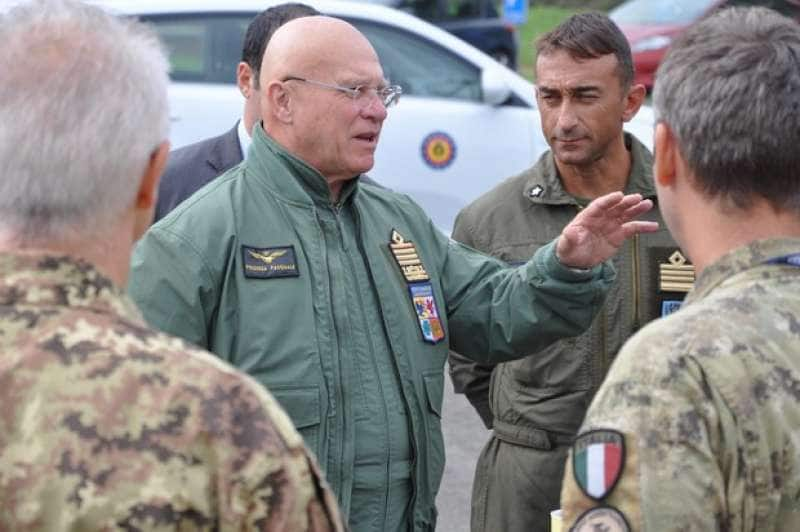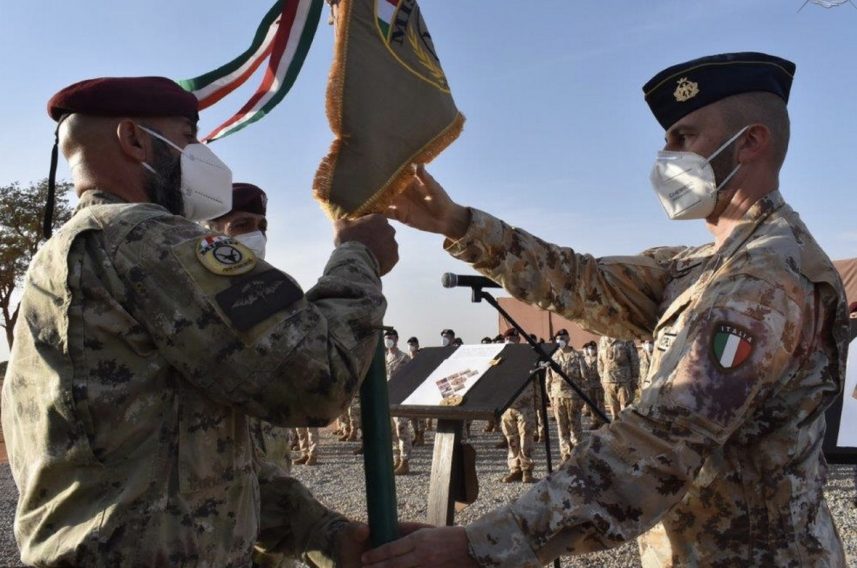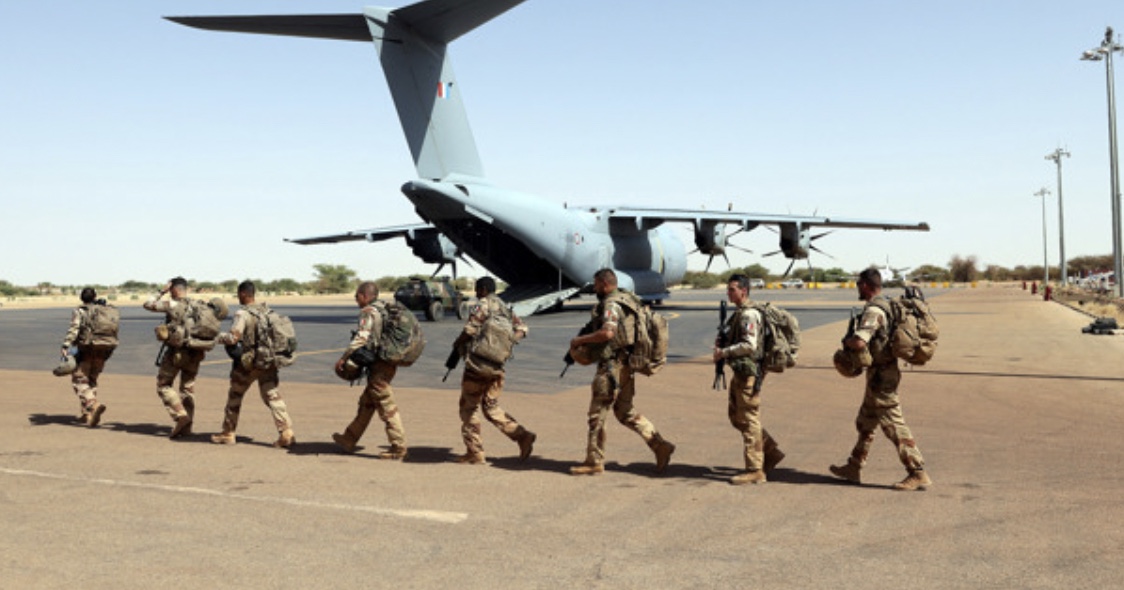France and its European partners operating in Mali have announced their coordinated withdrawal from the country, where they are present with the operation Barkhane and European special forces Takuba. "The political, operational and legal conditions are no longer met"And the countries, reads a joint statement, have decided "The coordinated withdrawal" from the African country, while ensuring theirs “Willingness to stay engaged in the region" of the Sahel, where jihadist threats remain. France has approximately 4.300 soldiers in the region, about 2.400 in Mali alone. The Sahel is a "priority of the expansion strategy"Of Al-Qaeda and Isis, Macron specifies. Despite the withdrawal of the troops, the Elysée leader insisted on "maintaining the commitment in the Sahel with neighboring countries ".
"Sahel, France turns the page on the Barkhana operation", So he titled 'Le Figaro', which reflects in an editorial on the significance of a loss of French influence in the region that has been an area of interest for him for over a century.
After last night's business dinner at the Elysée with the Italian premier Mario Draghi and with other European and African leaders, the president Emmanuel Macron today announced the withdrawal of French forces from Operation Barkhane from Mali. The soldiers of the Takuba mission, in which the special forces of European countries, including Italy, participate.
I budget of the French mission
The French presence in Mali dates back to January 2013, when the president Francois Hollande he decided to send troops to prevent the capital Bamako from ending up in the hands of the jihadist forces after the north of the country. The French presence in Mali, justified by the need to curb the Islamist advance, protect Europe from possible attacks and control migrant routes, was made impossible after two successive coups d'état brought forces hostile to France to the government. The tension between the military junta based in Bamako and Paris resulted in the expulsion of the French ambassador, and in the African capital it is not uncommon to see written as death to the French and their allies.
Ten years of French war on terrorism they were disastrous. The massive mobilization of military forces has entailed enormous costs: 2 billion euros a year, in 2020 alone two thousand five hundred deaths in Mali, Burkina Faso and Niger, two million refugees with jihadist groups that have controlled large areas of territory in the Sahel, fostering struggles between communities. The massacres have multiplied over the years where civilians have been killed more by the military than by the jihadists. There was also a very strong information campaign against the French presence after the death of 19 innocent civilians in Bounti in Mali due to a French aviation mistake.
We are thinking of a repositioning in Niger or Chad
Macron, Draghi and the other EU leaders want to leave Mali but not completely abandon the Sahel region. One hypothesis is the strengthening of the presence in Niger o Chad, even if the idea is to rethink all the collaboration with the G5 Sahel and West African countries.
The objectives of Barkhane e Takuba can no longer be prosecuted even for the presence of Russian mercenaries of Wagner, who support the military junta in power. During the meeting in Moscow between Putin and Macron on February 7, the Russian president repeated that Wagner is a private security company that has no connection with the Kremlin, but the most credible version is that Putin uses mercenaries. to conduct actions for which he does not want to be held responsible.
The end of Barkhane after nine years of French military presence in Mali seals both tactical and political failure. The bombings against jihadist groups have failed to eliminate the Islamist threat and the efforts of Barkhane's soldiers have failed to stem the growing anti-French sentiment among the population.

General Precious: "Africa is a bedrock of instability"
THEAfrica is a turmoil of instability, so the general Pasquale Preziosa, former head of the Air Force until 2016 and today president ofEurispes Safety Observatory.
The Sahel, analyzes the general, represents the "crossroads of African instability with religious claims supported by armed groups affiliated with al Qaeda linked to the marginalization of the northern regions of Mali". In addition to religious conflicts, there are also armed ones between opposing factions due to ethnic and political problems. The risk of violence in the region was very high and since 2010 there has been an increasing trend of new crises, including the Tuareg and Islamist rebellion in northern Mali (Ansar al-Dine-Islamic State of Iraq and ash-Sham in Greater Sahara, Jama'at Nusrat al -Islam wal-Muslim, al-Mulathamun Battalion) and the Boko Haram guerrillas in northeastern Nigeria.
Historically, the attacks of Al Qaeda began in 1998 in Nairobi and with the Arab revolutions of 2011 in Africa also the affiliates of the Islamic state of Abu Bakr Al Baghdadi. In Mali, 94% of the population (about 20 million) is of Muslim faith with more than ten ethnic groups, 13 local languages in addition to the official French one.
In the region there is the commitment of the UN, since 2013 with theMinusma operation with results not yet visible, of the European Union with theOperation Eutm-M for the training of the armed forces, perceived by the locals "too theoretical". The French counter-terrorism mission (which has already reported 54 victims), called Barkhane, has lost the support of the Malian population day by day. According to some Malian political parties, "only the people of Mali can put an end to the ongoing conflict".
The situation in Mali, therefore, is similar to that of Afghanistan at the beginning of the "Global war on Terrorism". Some analysts have called Mali the "new Afghanistan" of Africa.
Moreover, due to the fight against iihadism, military operations by a large coalition with many powers involved are still underway in some areas of Iraq and Syria, the results of which do not appear to be certain or yet definitive. The opening of military operations in Africa to combat Jihadism with the participation of a number of countries and minimal forces has always raised doubts about the effectiveness of the global strategy to combat the terrorist phenomenon.
Italy, in particular, suggests Preziosa, should ask itself, after Afghanistan, on the lines to follow to ensure levels of national security adequate to the new world framework that sees a very demanding strategic competition to win the future. The stabilization of the international framework will not be without surprises. It is necessary to resort to history and his teachings, especially those inherited from the ancient Roman Empire due to threats from the South. The security of the Empire was obtained by strengthening the countries of North Africa and not by dispersing the efforts in areas of little commercial or strategic interest.
La Libya, la tunisia andAlgeria, just to name a few, are the countries of strategic interest for the security not only of Italy but for the whole of Europe. Military operations, even if peacekeeping, have very high costs, even for the G7 countries which, after the pandemic, had to raise the public debt to levels never seen before. Military operations have certain costs, but uncertain returns. Il Mali represented a "Quagmire of trouble" which he left as an inheritance to future generations, General Preziosa comments, not only a large financial debt, but also a strategic foreign policy debt.
Italy in Africa
Our country is present in that territory with the “Bilateral support mission in the Republic of Niger - MISIN", Commanded by the pilot colonel of theair Force, Davide Cipelletti, (with the geographical area of intervention also extended to Mauritania, Nigeria and Benin) in order to increase the capacities aimed at combating the phenomenon of illegal trafficking and threats to security, as part of a joint European and US effort for the stabilization of area and the strengthening of territorial control capacities by the Nigerian authorities and the G5 Sahel countries.
About 200 militar Italians are, on the other hand, included in the TF Takuba, guaranteeing medical evacuation capabilities of coalition personnel in operation through the use of the 3 CH 47 F transport aircraft of theArmy, in medevac configuration that make use of the necessary safety framework ensured by the 3 exploration and escort helicopters AH - 129D "Mangusta", of the 5th and 7th regiments of the Army Aircraft Brigade, framed in the Task Force “Jacana".

